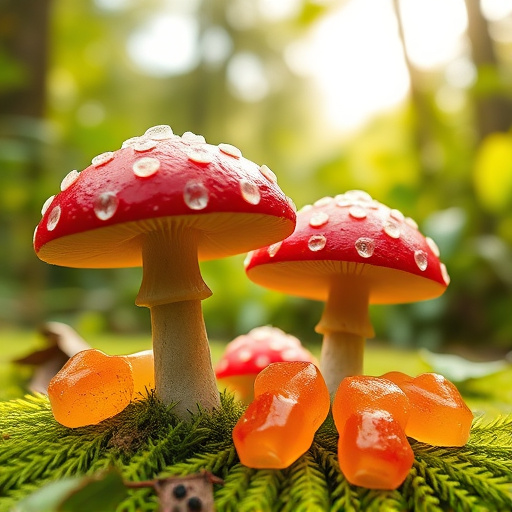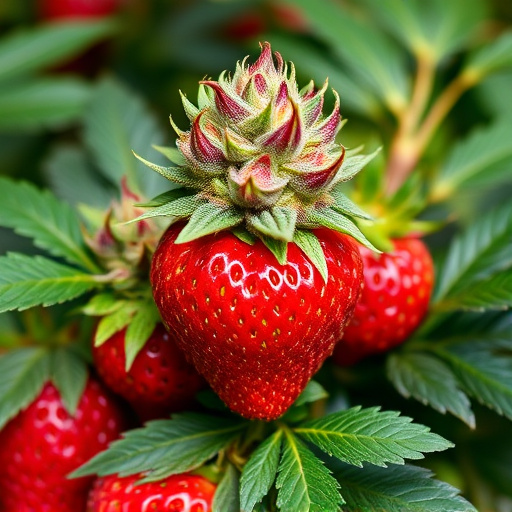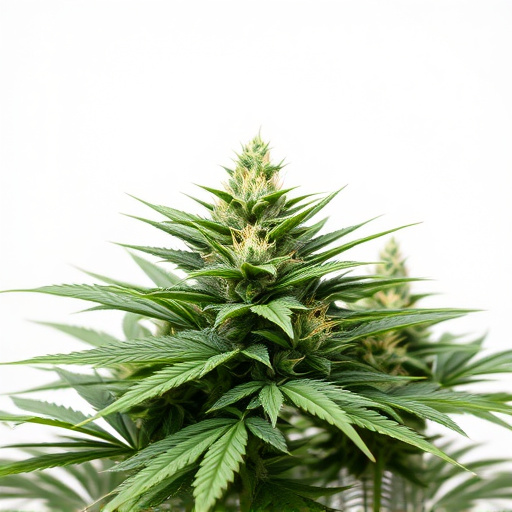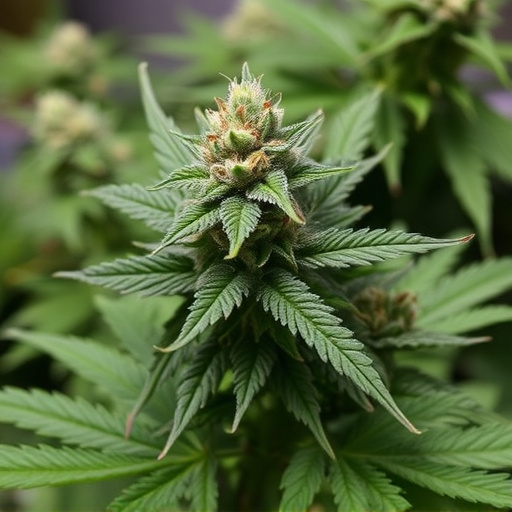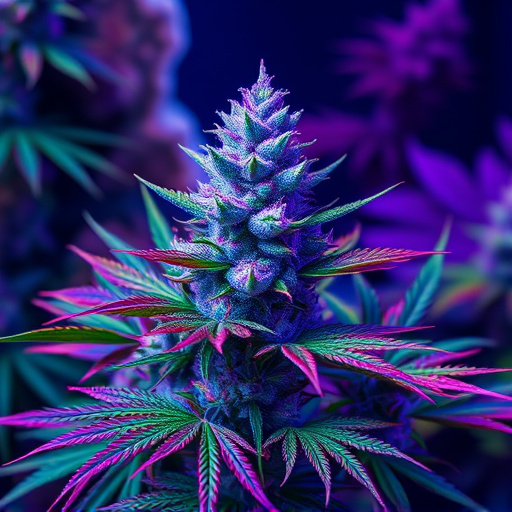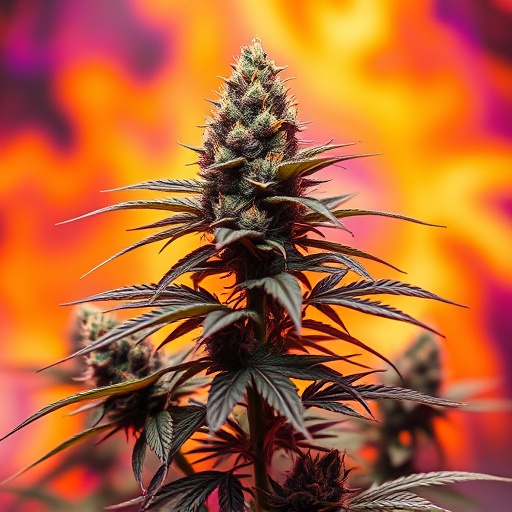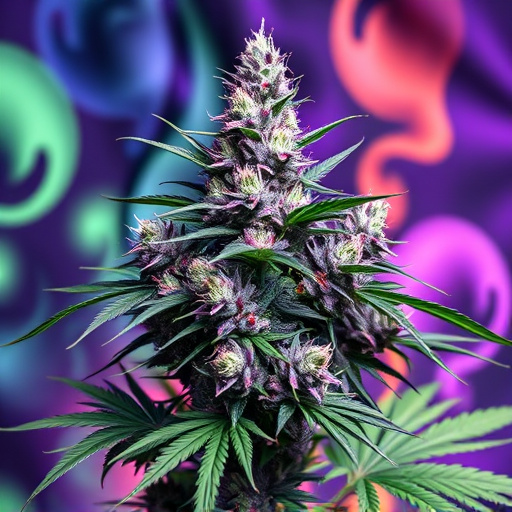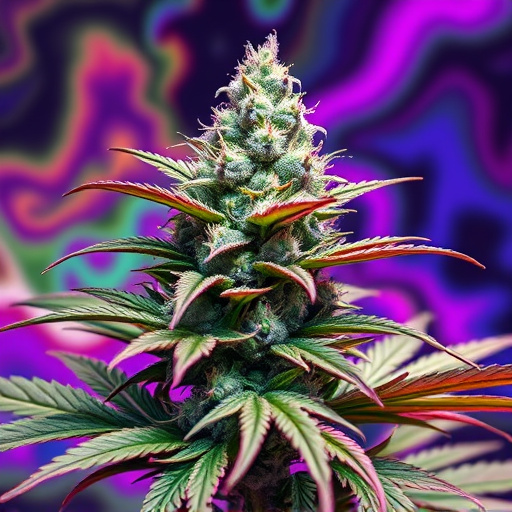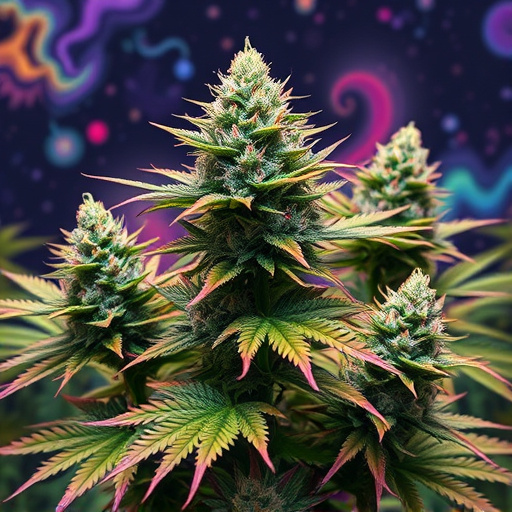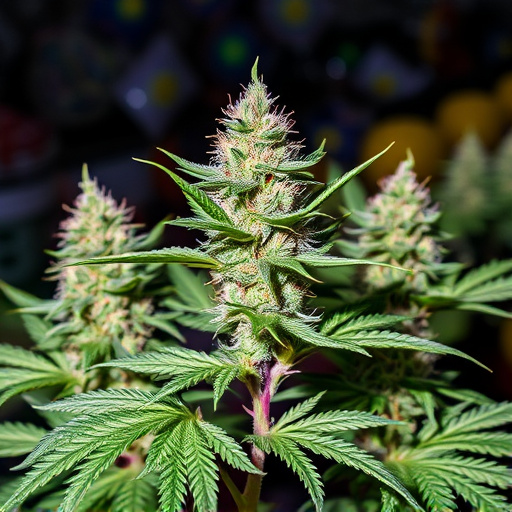The science behind cannabis potency reveals that nutrition plays a complex role, especially with psychedelic strains. Recent research suggests certain nutrients like omega-3 fatty acids and vitamins can enhance terpene profiles and strain strength. While diet may not directly alter cannabinoid levels, it could potentially boost the body's natural endocannabinoid production and reduce side effects. Exploring these dietary influences offers new insights for optimizing psychedelic cannabis experiences, although more scientific evidence is needed to support specific food-potency claims.
“Wondering if your diet can impact the potency of your favorite psychedelic cannabis strains? This article delves into the intriguing connection between nutrition and cannabis strength. We explore the science behind cannabis potency, focusing on how our diet might influence the effects of different strains. From micronutrients to macronutrients, discover the role of food in enhancing or altering the experience of psychoactive cannabis. Uncover the truth about eating specific foods to make ‘weed stronger’ and gain insights into the fascinating interplay between nutrition and neurochemicals.”
- The Science Behind Cannabis Potency and Nutrition
- Exploring the Impact of Diet on Psychedelic Cannabis Strains
- Uncovering the Myth: Can Eating Specific Foods Enhance Weed Strength?
The Science Behind Cannabis Potency and Nutrition
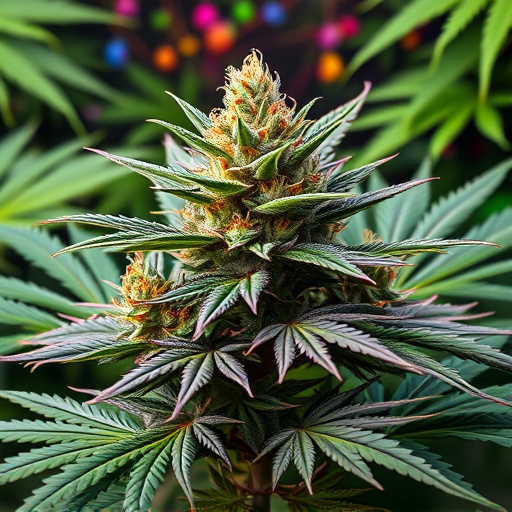
The science behind cannabis potency is intricate, with various factors influencing the strength and effects of different strains. One lesser-explored aspect is the potential connection between nutrition and cannabis power. While it’s well-known that specific compounds like THC (tetrahydrocannabinol) and CBD (cannabidiol) contribute to a strain’s potency, recent studies suggest that nutritional elements can also play a role in enhancing or altering these effects.
Nutrients like omega-3 fatty acids, vitamins A, D, and E, and minerals such as magnesium and zinc have been linked to optimizing cannabis production in plants. These nutrients may indirectly impact the overall potency of a strain by influencing terpene profiles—the aromatic compounds that enhance or modify the high induced by cannabinoids. Furthermore, certain psychedelic cannabis strains, known for their heightened potency and unique effects, might benefit from tailored dietary support to maximize their potential therapeutic advantages.
Exploring the Impact of Diet on Psychedelic Cannabis Strains
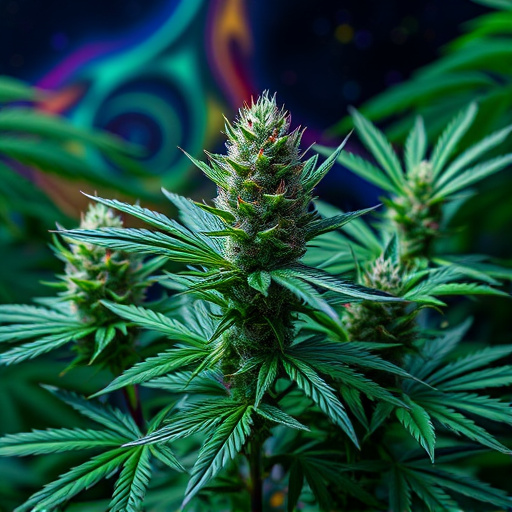
The relationship between diet and the potency of cannabis is a fascinating aspect often overlooked in discussions about psychedelics. When it comes to psychedelic cannabis strains, specific dietary choices could potentially influence their overall strength and effects. Some researchers suggest that certain nutrients found in food can interact with cannabinoids, leading to enhanced or altered experiences.
For instance, a diet rich in omega-3 fatty acids, commonly found in fish, nuts, and seeds, is believed to boost the body’s natural production of endocannabinoids. These endo-cannabinoids mimic the effects of THC, the primary psychoactive compound in cannabis, potentially amplifying the high experienced from psychedelic strains. Additionally, antioxidants present in colorful fruits and vegetables may aid in reducing any potential negative side effects associated with cannabis consumption. Exploring these dietary influences on psychedelic cannabis strains offers an intriguing angle for both scientists and enthusiasts seeking to optimize their experiences.
Uncovering the Myth: Can Eating Specific Foods Enhance Weed Strength?
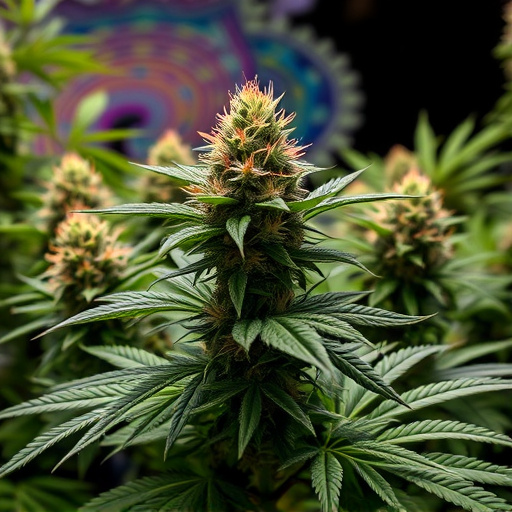
Uncovering the Myth: Can Eating Specific Foods Enhance Weed Strength?
One common belief is that consuming certain foods can amplify the effects of cannabis, making it stronger or more potent. This idea often revolves around the concept of enhancing the experience with psychedelic cannabis strains. However, the scientific evidence supporting this theory is limited. While some advocate for specific dietary choices, claiming they boost the potency, these claims are largely anecdotal and lack rigorous research.
The reality is that the strength of cannabis is primarily determined by its chemical composition, particularly the levels of cannabinoids like THC and CBD. These compounds are responsible for the plant’s psychoactive properties and various therapeutic effects. While diet can influence overall health and how an individual metabolizes substances, it’s unlikely to significantly alter the potency of cannabis on its own. The perceived enhancement from food might be attributed to a more intense personal experience or the placebo effect rather than any measurable increase in the drug’s strength.
While the idea of enhancing weed strength through diet may be enticing, scientific evidence suggests that the impact is minimal. The potency of psychedelic cannabis strains is primarily determined by genetic factors and cultivation methods. While certain nutrients can support overall health and enhance the experience, they are unlikely to significantly increase the potency of the plant itself. As such, focusing on responsible consumption and understanding strain profiles is more beneficial than relying on dietary myths for stronger experiences.
